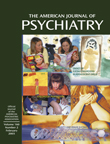The Empathic Healer: An Endangered Species?
Canst thou not minister to a mind diseased, Pluck from the memory a rooted sorrow, Raze out the written troubles of the brain, And with some sweet oblivious antidote Cleanse the stuffed bosom of the perilous stuff Which weighs upon the heart? (Macbeth, act V, scene iii)
In my distress I called upon the Lord, and cried unto my God: he heard my voice out of his temple, and my cry came before Him, even into His ears. (Psalm 18:6)
“Sixty patients an afternoon! That’s what we handle! Sixty! Two or three operations every morning. Calls at night. And sixty patients an afternoon.”“Sixty! But you can’t…”“No, you can’t possibly do them justice. That’s right. All you can do is treat their symptoms. The ones you don’t miss. A pill here, a prod there, adhesive tape, tonic, soothing lotions, keep ‘em going. Just dab a little on and keep ‘em going. That’s not Medicine, Ave. That’s not Medicine. And every patient I handle I know it’s wrong. It’s dead wrong, and I’m doing it, and my guts turn over.” (Not As a Stranger [2])
References
Information & Authors
Information
Published In
History
Authors
Metrics & Citations
Metrics
Citations
Export Citations
If you have the appropriate software installed, you can download article citation data to the citation manager of your choice. Simply select your manager software from the list below and click Download.
For more information or tips please see 'Downloading to a citation manager' in the Help menu.
View Options
View options
PDF/EPUB
View PDF/EPUBLogin options
Already a subscriber? Access your subscription through your login credentials or your institution for full access to this article.
Personal login Institutional Login Open Athens loginNot a subscriber?
PsychiatryOnline subscription options offer access to the DSM-5-TR® library, books, journals, CME, and patient resources. This all-in-one virtual library provides psychiatrists and mental health professionals with key resources for diagnosis, treatment, research, and professional development.
Need more help? PsychiatryOnline Customer Service may be reached by emailing [email protected] or by calling 800-368-5777 (in the U.S.) or 703-907-7322 (outside the U.S.).

